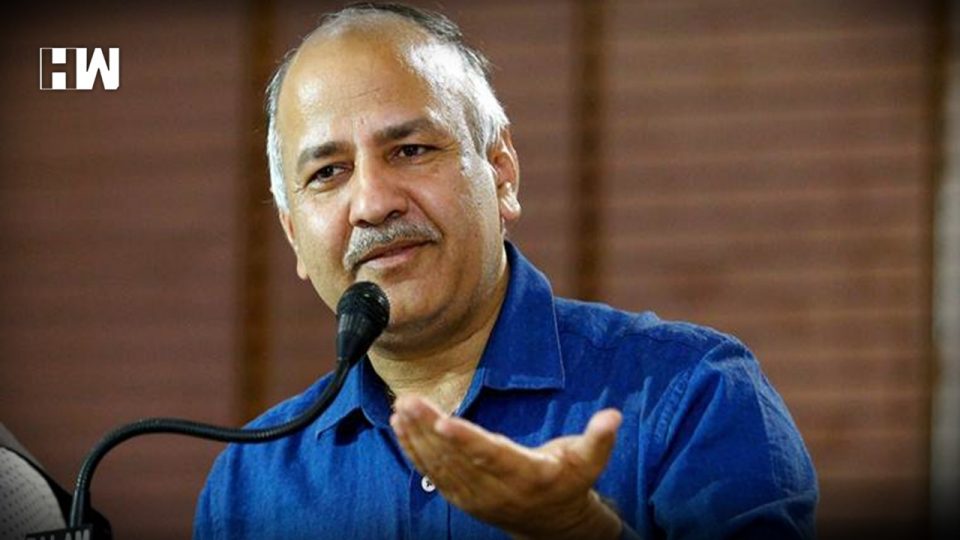New Delhi | The issue of full statehood to Delhi resonated during the budget session in Delhi Assembly on Tuesday when Deputy Chief Minister Manish Sisodia asserted that the Lokpal legislation would have been passed in the national capital had the status been granted to it.
He was backed by Chief Minister Arvind Kejriwal, who said the biggest challenge facing Delhi is it is a “half-state”.
Kejriwal said people in Delhi are paying more than Rs 1.5 lakh crore income tax and Delhi just got Rs 534 crore from the Centre.
“This is exploitation,” he said.
“If Delhi becomes a (full) state, this will stop. UP gets Rs 1.5 lakh crore. Some states get Rs 10 lakh crore. Mumbai pays the highest income tax and Delhi is the second,” he said.
Kejriwal had announced he would sit on indefinite fast from March 1 to demand full statehood but on Tuesday he postponed it in “view of the prevailing Indo-Pak situation”.
When Sisodia was asked of his biggest regret in five years, he said it was not being able to get the full-statehood status for Delhi.
Sisodia, in his budget speech, said corruption would have been eradicated had Delhi been granted full statehood.
“If Delhi were a full state, then during the tenure of our government, no employee from top to bottom would have had the guts to ask for a bribe or indulge in corruption,” Sisodia said.
“If Delhi were a full-fledged state, within two months of forming the government, the Lokpal law would have been passed in Delhi, for which the country had witnessed a big movement,” he added.
Sisodia said Mohalla Sabhas started by its government were also stopped after objections by the Delhi lieutenant governor.
“Had Delhi been a full state, the endeavour of Mohalla Sabhas would have progressed further, and by now, on the basis of experiences gained from it, a Swaraj Law (Act)’ would have been enacted in Delhi,” he said.
He said the biggest disadvantage of the arrangement of Delhi not being granted full statehood is that the entire administrative system lacks accountability to the public.
“People from Delhi pay tax, the same tax that pays the government employees their salaries. But when people’s work does not get done or when they have problems, no one assumes accountability,” he said.
“The people are suffering in the midst of this confusion between Delhi administration, the lt governor, the DDA, the MCD and the central government. I would like the attention of the House on this issue because our demand for full statehood is not for stopping the injustices towards the Delhi’s chief minister, ministers or legislators, but injustices towards the common people of Delhi,” he said.
Sisodia said the full statehood is important because the people of Delhi choose their government to make new schools, new colleges, new hospitals, but DDA does the job of giving land for it, which is a small department of the central government.
“Now how will the work of giving such land for a school in Bawana or Badarpur in Delhi, be prioritised by such a large central government. If the land is not there, how will the schools, colleges and hospitals be made for the people of Delhi,” he questioned.
“If with the shortage of new schools and hospitals there is also a shortage of teachers in schools and doctors and para-medical staff in hospitals, then the people of Delhi will have expectations from their chosen government in this regard, but due to lack of full statehood, the central government will decide on these matters,” he said.
“In hospitals, people may be unhappy with the long queues at the medicine-centre, but whether the pharmacist will get permission to open the second centre, this decision too will be taken by the Central Government. This is not fair to Delhiites,” he said.
The AAP government Tuesday presented a Rs 60,000-crore budget for 2019-20, laying emphasis on education, health and transport and said it is “two times more” than the first budget presented by it in 2014-15.
Sisodia said the budget is dedicated to the soldiers martyred in the Pulwama attack.
The Delhi Assembly session began with a standing ovation to the Indian Air Force which carried out pre-dawn air strikes on terrorist camps inside the Pakistani territory.
As an independent media platform, we do not take advertisements from governments and corporate houses. It is you, our readers, who have supported us on our journey to do honest and unbiased journalism. Please contribute, so that we can continue to do the same in future.

